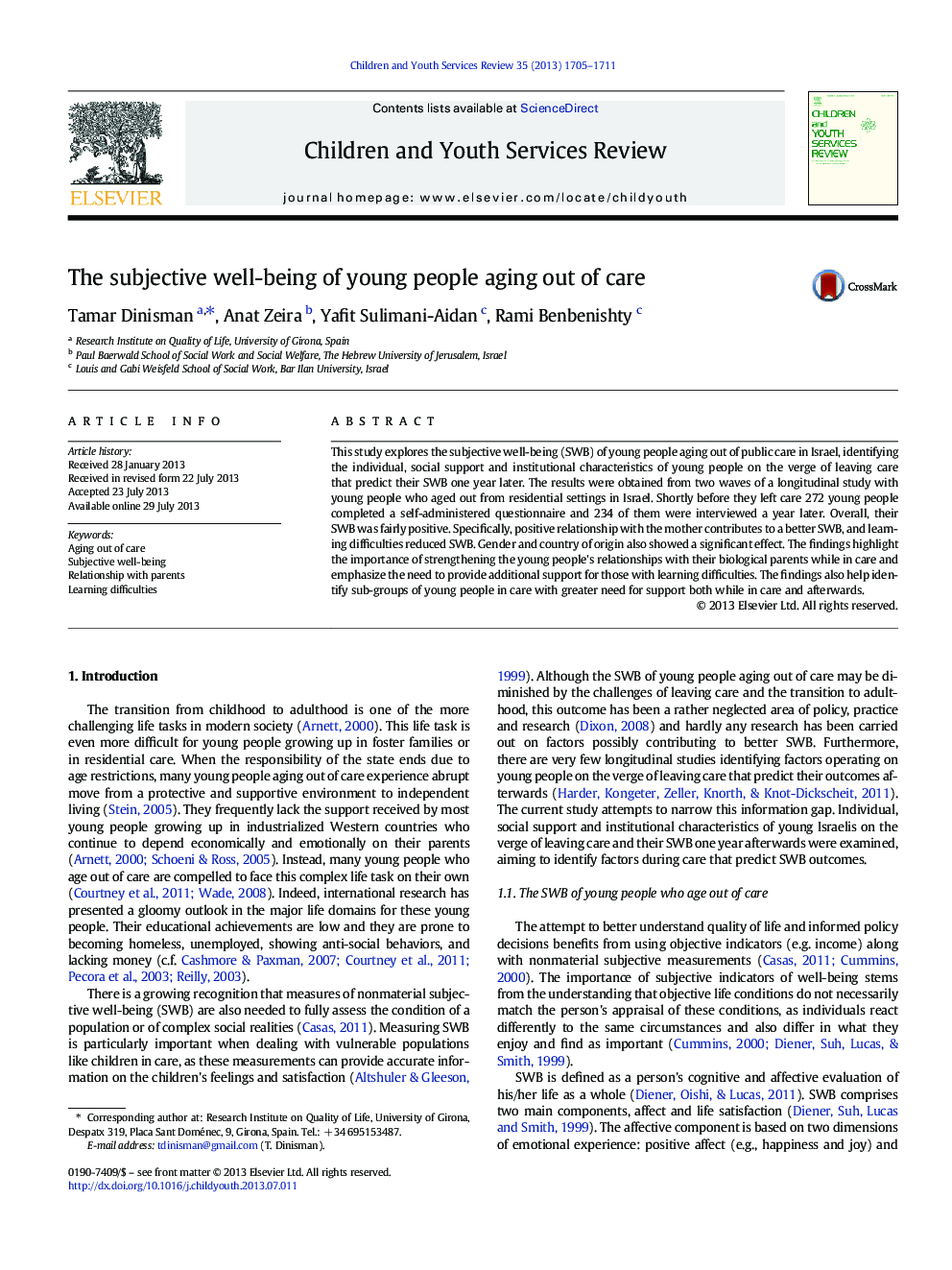| Article ID | Journal | Published Year | Pages | File Type |
|---|---|---|---|---|
| 346067 | Children and Youth Services Review | 2013 | 7 Pages |
•The subjective well-being of care leavers in Israel is fairly positive.•Positive relationships with the mother contribute to subjective well-being.•Learning difficulties reduced subjective well-being.•Gender and country of origin showed an effect on subjective well-being.
This study explores the subjective well-being (SWB) of young people aging out of public care in Israel, identifying the individual, social support and institutional characteristics of young people on the verge of leaving care that predict their SWB one year later. The results were obtained from two waves of a longitudinal study with young people who aged out from residential settings in Israel. Shortly before they left care 272 young people completed a self-administered questionnaire and 234 of them were interviewed a year later. Overall, their SWB was fairly positive. Specifically, positive relationship with the mother contributes to a better SWB, and learning difficulties reduced SWB. Gender and country of origin also showed a significant effect. The findings highlight the importance of strengthening the young people's relationships with their biological parents while in care and emphasize the need to provide additional support for those with learning difficulties. The findings also help identify sub-groups of young people in care with greater need for support both while in care and afterwards.
